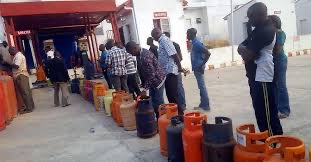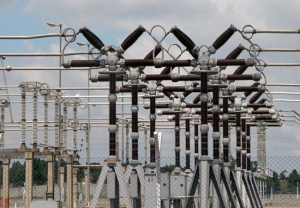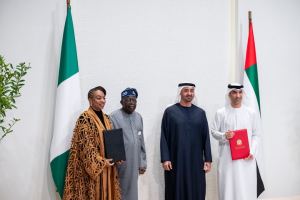
Nigerians across major cities are currently facing a significant shortage of cooking gas, with many gas stations running out of stock and others charging steep prices.
The price of refilling a 12.5kg cylinder has surged to N25,000 this week, up from N17,500 the previous week. The price for 1kg of LPG now ranges between N1,500 and N2,000, depending on location.
The Executive Secretary of the Nigerian Association of Liquefied Petroleum Gas Marketers (NALPGAM), Bassey Essien, attributed the disruption in supply primarily to the recent strike by the Petroleum and Natural Gas Senior Staff Association of Nigeria (PENGASSAN).
The strike affected the distribution capacity of Dangote Petroleum Refinery, Nigeria’s highest local supplier of cooking gas, causing many dealers to run out of stock.
Essien explained that the current situation is largely a result of supply not meeting demand, but he expressed optimism that stability would return soon following the resolution of the industrial conflict.
Consumers in Lagos, Ogun, and other states have reported long queues at filling stations, while some retailers have shut down plants, pushing consumers to seek alternatives such as charcoal and electricity.
Experts note that although local LPG production has increased significantly, much of it is prioritized for export, adversely affecting domestic availability.
Energy law experts have pointed out that the persistent shortages reflect structural challenges in supply chain management and market dynamics.
The price hike is putting additional pressure on households and small businesses, many of whom are already grappling with Nigeria’s rising cost of living.
Stakeholders urge a swift resolution to the supply disruptions to bring relief to consumers and stabilize the market.
This development illustrates the fragile balance in Nigeria’s energy sector and highlights the need for improved supply chain resilience and regulatory oversight to ensure affordable access to cooking gas, a vital household commodity.








